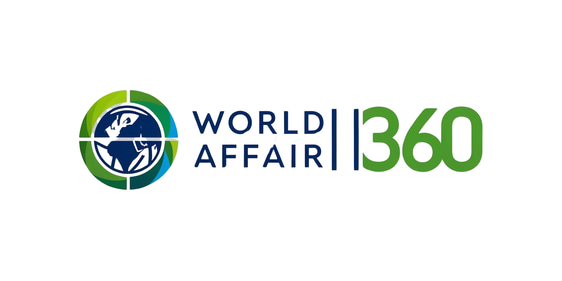Quad Foreign Ministers to Meet: A New Chapter for Indo-Pacific Diplomacy Post-Trump Inauguration
The upcoming meeting of the foreign ministers from the United States, Australia, India, and Japan in Washington, following Donald Trump’s inauguration, signals the continuity of the Quad alliance, focusing on reinforcing cooperation among the four democracies. While no major breakthroughs are expected, the meeting will set the stage for future collaboration, particularly on issues like technology and green energy. The Quad, initially formed to counter China’s growing influence in the Indo-Pacific, aims to offer an alternative model to China’s economic and geopolitical strategies, though it is not meant to be an anti-China alliance. With U.S. Secretary of State nominee Marco Rubio’s confirmation paving the way, experts suggest the gathering will be more about strengthening ties and reviewing past progress rather than introducing new initiatives. India is particularly interested in deepening cooperation on technology and environmental matters. As the Quad continues to increase its influence, it is poised to impact global trade and geopolitics, providing an alternative to China’s Belt and Road Initiative. This meeting underlines the Quad’s potential to shape regional and global responses to critical issues like climate change, technological challenges, and regional security. In the broader context, the Quad's ability to manage diverse interests and coordinate efforts will be key to its long-term success.
GEO-POLITICSDEFENSE & MILITARYINDIAUSAASIA


Quad Foreign Ministers to Meet: A New Chapter for Indo-Pacific Diplomacy Post-Trump Inauguration
The day after President-elect Donald Trump’s inauguration, a significant diplomatic event is expected to take place in Washington, with the foreign ministers of the United States, Australia, India, and Japan coming together for a meeting. This gathering, the first major diplomatic activity of the new administration, signals the continuity and evolving dynamics of the Quad, a strategic group formed to address the growing influence of China in the Indo-Pacific region.
The Quad, also known as the Quadrilateral Security Dialogue, comprises four democracies—India, Australia, Japan, and the United States—who share concerns about China’s expanding economic, military, and geopolitical power. This upcoming meeting is poised to be more symbolic than substantive, marking an early sign of diplomatic cooperation under President Trump's second term.
Understanding the Significance of the Quad
The Quad's core objective is to foster closer strategic ties between these Indo-Pacific democracies. It has been widely recognized as a counterbalance to China's rising influence. However, the alliance is careful not to position itself as an "anti-China" bloc, despite Beijing’s perception of it as a strategic challenge.
While the recent meeting of Quad foreign ministers may not immediately yield new policies or initiatives, it is expected to reinforce the continuity of cooperation among the four countries. Experts have pointed out that it will likely focus on laying the groundwork for future discussions, especially in areas like technology and green energy. The grouping aims to explore avenues for deeper collaboration and economic integration, positioning itself as an alternative to China's increasing sway in the region.
U.S. and Quad Continuity Under Trump’s Administration
With the appointment of Republican Senator Marco Rubio as the likely U.S. Secretary of State, the meeting is poised to proceed smoothly. Analysts predict that this early interaction between the Quad ministers will emphasize continuity in foreign policy, especially in maintaining a united front against perceived challenges posed by China. According to Charles Edel, a senior expert at the Center for Strategic and International Studies, the purpose of the meeting will primarily be to "get to know each other," review the progress of the Quad, and set the stage for further discussions down the line.
In terms of strategic focus, experts suggest that while new initiatives may not emerge immediately, the ministers will likely emphasize ongoing cooperation and discuss the potential for future action. India's interest in using the Quad to foster collaboration on technology and green energy is seen as one of the key focal points, reinforcing the bloc’s desire to tackle global challenges, including climate change, while enhancing economic cooperation.
The Role of the Quad in Indo-Pacific Diplomacy
The Quad has evolved significantly since its inception in the mid-2000s, evolving from a loose strategic framework to a more structured partnership aimed at addressing regional security and economic challenges. Despite criticism and concerns over its effectiveness, the grouping has played a key role in facilitating security and trade dialogues among Indo-Pacific democracies.
In terms of specific goals, experts indicate that the Quad is increasingly seeking to offer an alternative to China’s model of economic dominance, characterized by massive investments and growing geopolitical leverage in the region. Unlike China’s Belt and Road Initiative, which critics argue carries heavy debt burdens for participating countries, the Quad countries aim to provide an alternative model based on democratic values, mutual respect, and economic sustainability.
However, the Quad’s growing influence is not without its challenges. Coordinating among four distinct democracies with varying priorities and regional perspectives will require balancing competing interests. India, for instance, has consistently emphasized that the Quad is not an anti-China alliance, despite China’s skepticism about the group. The countries involved in the Quad are also conscious of the need to manage their own bilateral relations with China, which has remained a major trade partner for many of them.
The Global Implications: What Does It Mean for the World?
The meeting of the Quad foreign ministers under the Trump administration is likely to send an important message not only to China but to the world at large. It signifies a continuation of U.S. commitment to its Indo-Pacific partners and underscores the growing importance of regional security dynamics in the face of China's rising power. The emphasis on cooperation in technology and green energy also points to the Quad’s long-term vision of not just countering China but also addressing global challenges like climate change and technological disruption.
On a broader level, the Quad's increasing cooperation will also have implications for global trade and geopolitics. With China’s Belt and Road Initiative facing increasing scrutiny, the Quad's diplomatic efforts could provide a viable alternative, particularly in sectors like infrastructure, technology, and clean energy. As countries in the Indo-Pacific region look for ways to balance their relationships with China, the Quad offers a forum to discuss these issues while navigating complex economic, environmental, and security challenges.
How the Meeting Might Affect the Quad’s Long-Term Future
Looking ahead, this meeting could be seen as a precursor to more substantial and concrete initiatives within the Quad. By emphasizing continuity and strengthening ties among the four democracies, the Quad could position itself as a leading force in the Indo-Pacific, advocating for policies that promote regional stability, sustainable development, and democratic values.
As the world shifts towards addressing global challenges like climate change and technology-driven disruptions, the Quad’s collaborative efforts may be crucial in influencing how these issues are addressed on a regional and global scale. However, the long-term success of the Quad will depend on the ability of its members to align their interests while managing their complex relationships with China.
Conclusion
In conclusion, the upcoming meeting of Quad foreign ministers, though unlikely to produce immediate breakthroughs, is an important diplomatic event signaling the continuity of U.S. foreign policy under the new administration. The meeting’s focus on collaboration in technology and green energy, alongside the broader strategic concerns over China’s growing influence, highlights the Quad's evolving role in Indo-Pacific diplomacy. While challenges remain in managing the diverse interests of its members, the Quad’s growing influence will likely continue to shape regional geopolitics in the years ahead.
